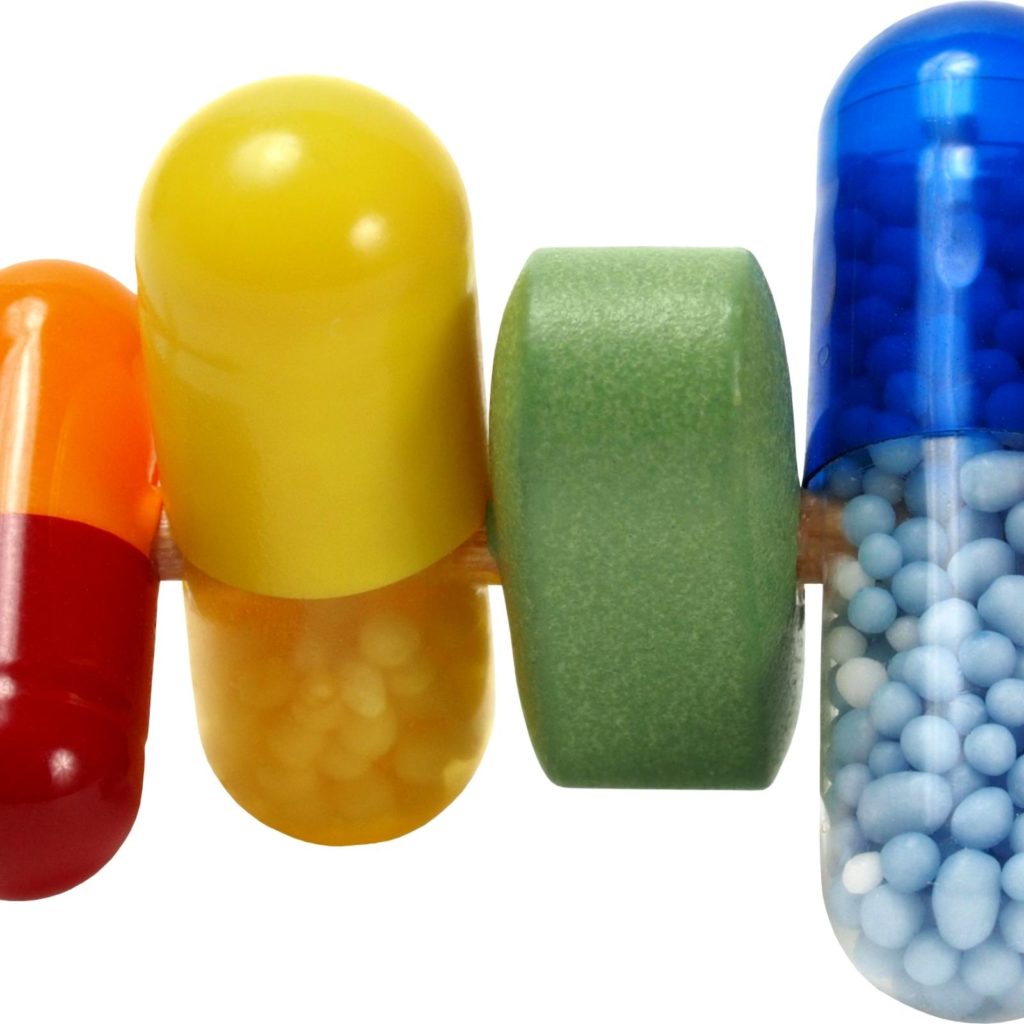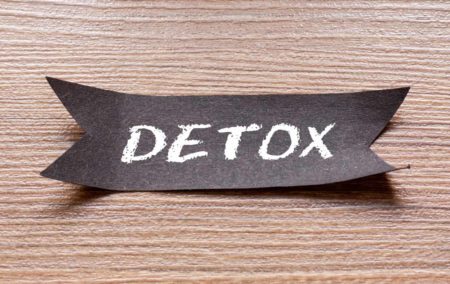What is MDMA?
MDMA, short for 3,4-methylenedioxymethamphetamine, is most commonly known as Ecstasy or Molly (short for molecule). It is a laboratory-made drug that produces a “high” similar to the stimulants called amphetamines. It also produces psychedelic effects, similar to the hallucinogens mescaline and LSD. MDMA first became popular in the nightclub scene, at “raves” (all-night dance parties), and music festivals or concerts. It is a popular party drug/rave energy pill and is used by a broader range of people. The drug’s effects generally last from 3 to 6 hours. It produces an energizing effect, distortions in time and perception, and enhanced enjoyment from sensory experiences. It has also been described as an entactogen—a drug that can increase self-awareness and empathy.
MDMA is a Schedule I controlled substance. DEA recognizes it as having no medical use and a high potential for misuse or addiction. As a result, it’s illegal to sell, buy, or use any form of MDMA. Street drugs like MDMA/ecstasy/molly often contain other substances or cutting agents that imitate the drug’s physical appearance. Molly cutting agents like bath salts drugs and other powdery white substances make it easier for drug dealers to make more money with less product. Initially, Molly (MDMA) was usually abused in nightclubs, raves, and music festivals because users believed the high enhanced their experiences.

Most people who use MDMA take it in a pill, tablet, or capsule. The pills can be in different colors and sometimes have cartoon-like images on them. Some people take more than one pill at a time, called “bumping.” MDMA/Molly went pop when Miley Cyrus sang, in “We Can’t Stop,” “So la da da di / We like to party / dancing with Molly / Doing whatever we want.” It’s undeniable that music has the power to influence its listeners and arguably, all those drug and alcohol references serve as a major source of promotion for substance abuse.

Get Your Life Back
Find Hope & Recovery. Get Safe Comfortable Detox, Addiction Rehab & Dual Diagnosis High-Quality Care.
Hotline(844) 597-1011Who Abuse MDMA?
MDMA/Ecstasy/Molly is an energy drug that causes altered sensations. In the 1970s, MDMA was tested in psychotherapy. By the ’80s, ecstasy caught on as a recreational drug. During the ’90s, it became associated with rave culture. MDMA first gained popularity among young adults in the nightclub scene and at dance parties known as raves.
However, the profile of the typical person who uses MDMA has been changing. Beginning in 1999, community-level data from NIDA’s Community Epidemiology Work Group began to report that the use of MDMA had spread among populations outside the nightclub scene.
MDMA is predominantly used by males between the ages of 18 and 25. Most use typically begins at 21 years of age, possibly because it is considered an aphrodisiac. MDMA can enhance self-awareness and empathy, it may increase communication and feelings of closeness between lovers,
However, the physical effects of MDMA tend to make orgasm and erections more difficult to achieve in most users. Some users do find that MDMA can enhance their appreciation of touch and movement, called kinesthetic awareness. This may be one reason why MDMA use is so prevalent in dance clubs and has earned the nickname the “hug drug.”

How Long Do MDMA Effects Last?
The main effects of MDMA last around 3 hours, and minor effects last around 7 hours – assuming your substance contains pure MDMA. New users taking this drug on an empty or mostly empty stomach will notice the MDMA kick in around 1 hour after ingestion. Experienced users who are familiar with the effects may notice it kick in after as little as 30 minutes. The primary effects of MDMA last for about 3 hours, generally from hours 1 to 4 after ingestion. However: A substantial portion of Molly/Ecstasy sold as MDMA isn’t really MDMA. If users experience different timing than described here, that may not be a real MDMA.
Risks of MDMA Overdose
High doses of MDMA can influence the body’s capacity to direct temperature. This can prompt a spike in internal heat level that can occasionally bring about liver, kidney, heart failure, or even death. The drug’s utilization brings about releasing three chemicals in the brain: serotonin, norepinephrine, and dopamine. These are the brain’s neurotransmitters, and they impact sleep, mood, and appetite. Because MDMA affects the serotonin levels when the drug wears off, the user may feel depressed, agitated, and scared. MDMA overdose usually happens because of the mix of a wide range of drugs along with exhaustion.
Get Help. Get Better. Get Your Life Back.
Searching for Accredited Drug and Alcohol Rehab Centers Near You?
Even if you have failed previously and relapsed, or are in the middle of a difficult crisis, we stand ready to support you. Our trusted behavioral health specialists will not give up on you. When you feel ready or just want someone to speak to about therapy alternatives to change your life call us. Even if we cannot assist you, we will lead you to wherever you can get support. There is no obligation. Call our hotline today.
(844) 597-1011Short Term Effects of MDMA
- A person may experience the intoxicating effects of MDMA within 45 minutes or so after taking a single dose. Those effects include an enhanced sense of well-being, increased extroversion, emotional warmth, empathy toward others, and a willingness to discuss emotionally-charged memories. In addition, people report enhanced sensory perception as a hallmark of the MDMA experience.
- MDMA can also cause a number of acute adverse health effects. For example, while fatal overdoses on MDMA are rare, they can potentially be life-threatening—with symptoms including high blood pressure (hypertension), faintness, panic attacks, and in severe cases, a loss of consciousness and seizures.
- Because of its stimulant properties and the situations in which it is often taken, MDMA is associated with vigorous physical activity for extended periods in warm environments. This can lead to one of the most significant, although rare, acute adverse effects—a marked rise in body temperature (hyperthermia).
- Treatment of hyperthermia requires prompt medical attention, as it can rapidly lead to muscle breakdown or an electrolyte (sodium) imbalance, which can, in turn, produce kidney failure, or fatal swelling of the brain, especially in women.
- MDMA use in combination with vigorous exercise causes dehydration, leading some people to drink large amounts of liquids. However, this could increase the risk of electrolyte imbalance or brain swelling because MDMA causes the body to retain water.
- One modest dose of MDMA can also reduce the pumping efficiency of the heart in people who use it regularly, which is of particular concern during periods of increased physical activity.
First-class Facilities & Amenities
World-class High-Quality Addiction & Mental Health Rehabilitation Treatment
Rehab Centers TourRenowned Addiction Centers. Serene Private Facilities. Inpatient rehab programs vary.
Addiction Helpline(844) 597-1011Proven recovery success experience, backed by a Team w/ History of:
15+
Years of Unified Experience
100s
5-Star Reviews Across Our Centers
10K
Recovery Success Stories Across Our Network
- Low Patient to Therapist Ratio
- Onsite Medical Detox Center
- Comprehensive Dual-Diagnosis Treatment
- Complimentary Family & Alumni Programs
- Coaching, Recovery & Personal Development Events
Long Term Effects of MDMA
Continued use of MDMA will cause much damage to the body’s health.
Effects of MDMA on the heart. MDMA has many negative effects on the user’s heart. These include hypertension, tachycardia, and the indirect effects on the heart caused by the suppression of appetite, thirst, and sleep.
Effects of MDMA on the brain. Studies have shown that MDMA can cause brain damage, including a shrinking of the brain, and a decrease in the hippocampus volume. The hippocampus becomes swollen and atrophied. A dysfunctional and damaged hippocampus is connected to memory loss diseases like Alzheimer’s.
Effects of MDMA on the liver and lungs. A small number of MDMA users have been seen to have liver damage. Liver damage may be caused by a compromised immune system. It is still unknown whether liver toxicity is caused by the MDMA or by the other compounds found in the tablets. Collapsed lung cases have also been linked to the use of this drug.
Effects of MDMA on blood. The use of MDMA can result in high blood pressure, faintness, panic attacks, and in extreme cases, seizures and unconsciousness. MDMA suppresses the appetite, which is harmful to diabetics.
Effects of MDMA on sexual health. Women users may experience menstrual irregularity, reduced ovarian reserves, increased menstrual pain, and ovulatory dysfunction. MDMA use has a dramatic effect on the fertility of men. Male users often experience reduced libido, poor sperm count, and abnormally-shaped sperm.
Effects of MDMA on the nose and mouth. Snorting MDMA will cause chemical burns in your mouth and nose. Excessive use creates holes in your nose (perforated septum). Your nose will become soft from the drug eating the cartilage. Another common effect of MDMA is nosebleed.
Mental health effects of MDMA. More long-term effects of MDMA are psychological and emotional damage, such as strong extreme anxiety, emotional reactions, depression, and paranoia. You may also experience insomnia and sleep interruptions, disordered thinking, panic attacks, and delusions.

World-class, Accredited, 5-Star Reviewed, Effective Addiction & Mental Health Programs. Complete Behavioral Health Inpatient Rehab, Detox plus Co-occuring Disorders Therapy.
CALL(844) 597-1011End the Addiction Pain. End the Emotional Rollercoaster. Get Your Life Back. Start Drug, Alcohol & Dual Diagnosis Mental Health Treatment Now. Get Free, No-obligation Guidance by Substance Abuse Specialists Who Understand Addiction & Mental Health Recovery & Know How to Help.
MDMA Abuse Symptoms
People take MDMA because it can significantly enhance social experiences, and give users a feeling of intense closeness with other people. In the U.S., few illegal labs manufacture MDMA, with most people obtaining the drug from labs in Canada and the Netherlands.
The signs of MDMA use include:
- A lack of inhibitions
- Increases sociability
- A state of intense euphoria
- Strong feelings of connectedness
- Increased physical sensations
- Alertness and high energy
- Elevated blood pressure and heart rate
- Muscle tension and jaw clenching
- Dizziness and fainting
- Hot or cold flashes
- Loss of appetite
- Losing track of time
In severe cases, people can experience hyperthermia and dehydration, which can cause organ damage and other medical complications. Because MDMA is often mixed with other drugs, this can cause other adverse side effects, or increase the side effects of MDMA. It is impossible for users to know how much of a drug they are consuming when it comes to MDMA.
MDMA Addiction Treatment
If you have been using MDMA to lose weight, or if you or a loved one have been struggling with an MDMA addiction, professional MDMA addiction treatment may be necessary in order to fully recover. From detoxification to individual therapy and relapse prevention, there are many benefits of visiting a professional center.
Medically-Assisted Detox
Medical detox is often considered the first stage of treatment. It will help you navigate the complicated process of withdrawal, but it doesn’t address patterns of thought and behavior that contribute to drug abuse. Various treatment approaches and settings can help provide the ongoing support necessary to maintain long-term sobriety after you complete detox.
Cravings are very common during detox and can be challenging to overcome. This often leads to relapse. Constant medical care provided during inpatient treatment helps prevent relapse. Clinicians can provide necessary medication and medical expertise to lessen cravings and the effects of MDMA withdrawals.
Psychotherapy for Depression and Anxiety
Several different modalities of psychotherapy have been used in the treatment of depression including:
- Cognitive Behavioral Therapy (CBT) – is an effective treatment that involves making changes in both the patterns of negative thoughts and the behavioral routines which are affecting the daily life of the depressed person for various forms of depression.
- Dialectical Behavior Therapy – is a comprehensive mental health and substance abuse treatment program whose ultimate goal is to aid patients in their efforts to build a life worth living. The main goal of DBT is to help a person develop what is referred to as a “clear mind.”
- Person-Centered Therapy – is a strategy that allows and encourages clients to understand and resolve their concerns in a safe, supportive environment.
- Solution Focused Therapy – is an approach interested in solutions that can be quickly implemented with a simple first step leading to further positive consequences.
Dual Diagnosis Treatment
Substance abuse and mental health disorders often co-occur. In many cases, traumatic experiences can result in a mental health disorder and substance abuse. Dual diagnosis rehabilitation treats both of these issues together. The best approach for the treatment of dual diagnosis is an integrated system. In this strategy, both the substance abuse problem and the mental disorder are treated simultaneously. Regardless of which diagnosis (mental health or substance abuse problem) came first, long-term recovery will depend largely on the treatment for both disorders done by the same team or provider.
Medication-Assisted Treatments
Medication-Assisted Treatments (MAT) for substance use disorders and mental health disorders are commonly used in conjunction with one another. This includes the use of medications and other medical procedures. During your rehab, the staff from your treatment facility will help you identify what caused your addiction and teach you skills that will help you change your behavior patterns and challenge the negative thoughts that led to your addiction. Sometimes, the pressures and problems in your life lead you to rely on substances to help you forget about them momentarily.
Individual and Group Counseling
Addiction and mental health counseling occur in both individual and group settings. One-on-one treatment sessions may address unresolved trauma, unconscious conflicts, and specific struggles, while group sessions often involve training in life skills, stress management, conflict resolution, and social connections. Group counseling also gives clients the chance to share their thoughts and experiences to develop social support, which is essential for lasting recovery. If you or someone you know is experiencing the long terms effects of MDMA due to addiction, We Level Up has addiction specialists that are standing by to help.

Experience Transformative Recovery at We Level Up Treatment Centers.
See our authentic success stories. Get inspired. Get the help you deserve.
Start a New Life
Begin with a free call to an addiction & behavioral health treatment advisor. Learn more about our dual-diagnosis programs. The We Level Up Treatment Center Network delivers recovery programs that vary by each treatment facility. Call to learn more.
- Personalized Care
- Caring Accountable Staff
- World-class Amenities
- Licensed & Accredited
- Renowned w/ 100s 5-Star Reviews
We’ll Call You
Sources
[1] NIDA – https://nida.nih.gov/publications/drugfacts/mdma-ecstasymolly
[2] NIDA – https://teens.drugabuse.gov/drug-facts/mdma-ecstasy-or-molly
[3] NCBI – https://www.ncbi.nlm.nih.gov/pmc/articles/PMC4739726/
[4] Can You Snort Molly? – We Level Up NJ


